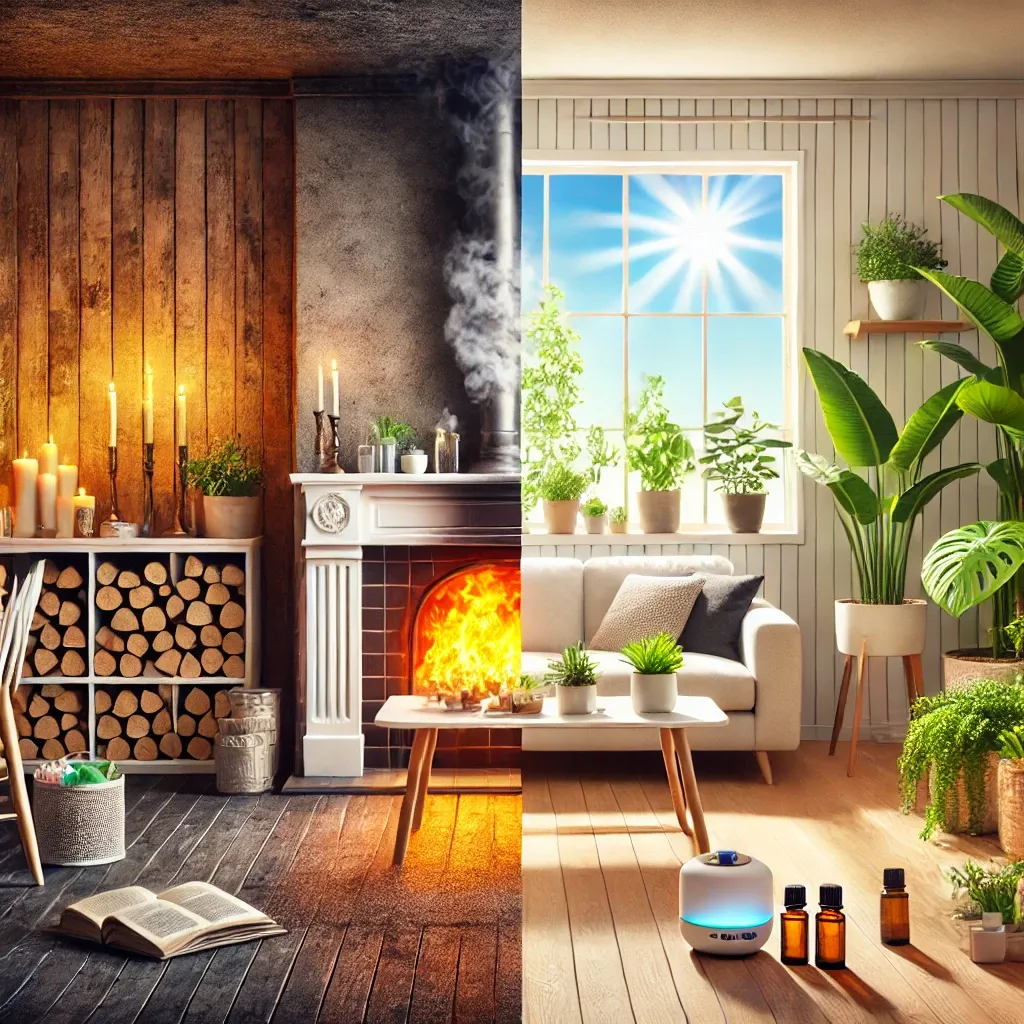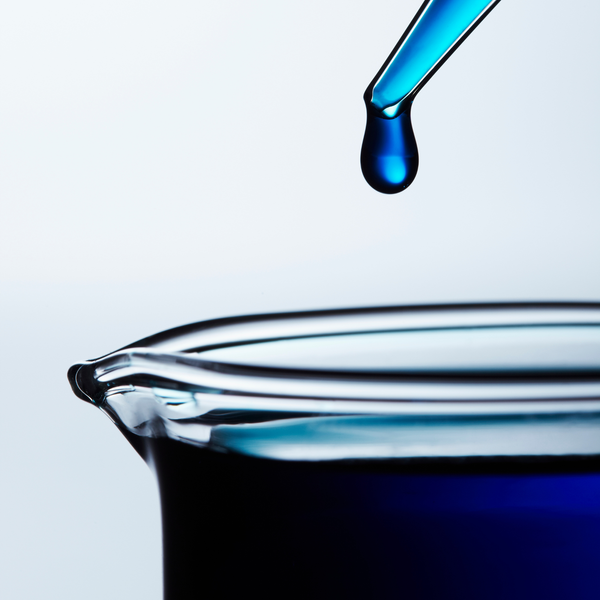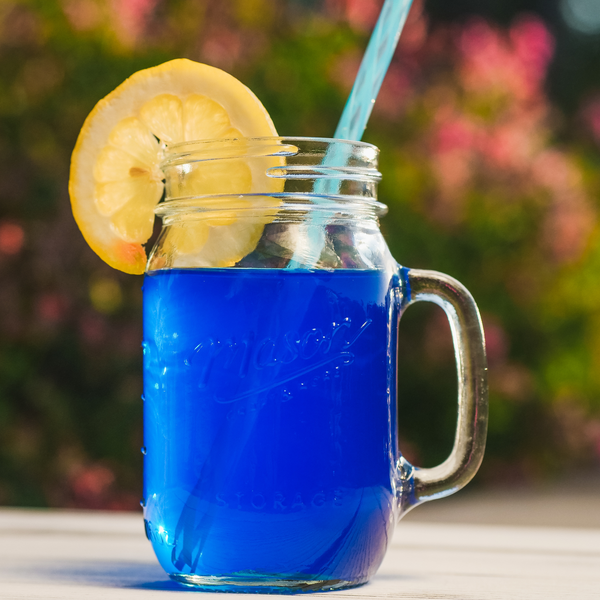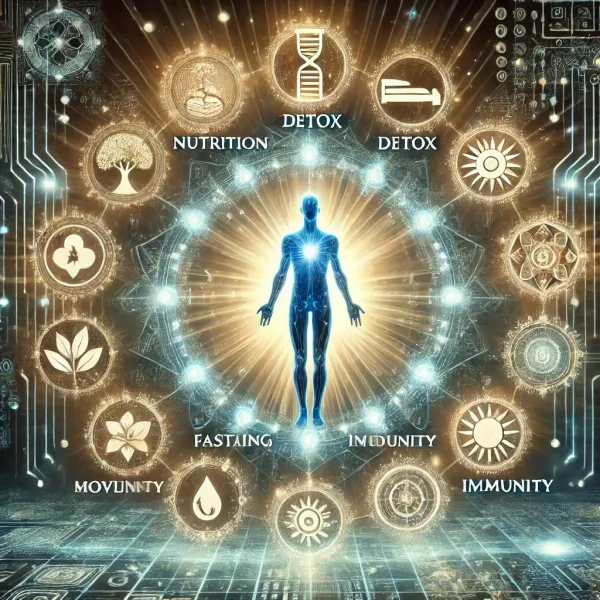My House Is Clean So That Can't Be Why I'm Sick! How Environmental Toxins Affect Gut Health and What To Do About It!

Introduction
Have you ever considered that the scented candle burning in your living room or the food preservatives in your pantry might be quietly sabotaging your gut health? Environmental toxins are everywhere—from the cleaning products we use to the additives in our food—and their impact on gut health is far-reaching.
In our last post, Heal Your Gut, Heal Your Body: Understanding the Role of Leaky Gut in Autoimmune Conditions, we explored the critical link between a compromised gut lining and autoimmune conditions. Today, we’re diving deeper into another hidden culprit: environmental toxins. These toxins don’t just harm your health—they also create an environment ripe for gut issues, including leaky gut, inflammation, and parasitic infestations.
The Link Between Environmental Toxins and Gut Health
Your gut is home to trillions of microbes that play a vital role in digestion, immunity, and overall health. Unfortunately, exposure to environmental toxins can disrupt this delicate balance:
- Parasites and Heavy Metals: An often-overlooked factor in gut health is the role of parasites. These invaders can contribute to gut dysbiosis and inflammation, further weakening the gut lining. Research suggests that parasites may actually use heavy metals like mercury and lead as a shield to evade the immune system (Journal of Parasitology Research, 2019). This double burden creates a vicious cycle of toxicity and gut dysfunction.
- Endocrine Disruptors: Chemicals like phthalates and bisphenol A (BPA) can mimic hormones, disrupting your body's natural processes and indirectly affecting gut health (Nature, 2020).
- Food Additives: Artificial sweeteners and preservatives harm beneficial bacteria and encourage the growth of harmful strains (Journal of Toxicology, 2017).
- Scented Products: In America, we’ve been conditioned to associate a "clean" house or "fresh" scent with synthetic fragrances. Sadly, these products often contain phthalates and volatile organic compounds (VOCs) that can harm gut bacteria (Environmental Science & Technology, 2020).
Common Household Sources of Gut-Disrupting Toxins
- Household Cleaners: Bleach, ammonia, and harsh detergents harm beneficial bacteria, not just on surfaces but also within your body.
- Personal Care Products: Shampoos, soaps, and lotions often contain parabens, triclosan, and synthetic fragrances—all linked to gut health issues.
- Air Pollutants: Scented candles and air fresheners release phthalates and VOCs that can disrupt your microbiome.
- Processed Foods: Artificial sweeteners, preservatives, and dyes negatively impact gut flora and intestinal health.
- Tap Water: Chlorine and fluoride in drinking water can alter your gut flora (Frontiers in Microbiology, 2018).
Practical Solutions to Reduce Exposure
1. Switch to Non-Toxic Products:
- Replace harsh cleaning products with natural alternatives like the ATTITUDE All-Purpose Cleaner, a plant- and mineral-based cleaner that’s safe for your home and health.
- Swap chemically-laden shampoos for the INNERSENSE Organic Beauty Leave-In Conditioner.
2. Improve Air and Water Quality:
- Use essential oil diffusers as an alternative to air fresheners. Check out oils available here.
- Invest in a high-quality water filter to remove chlorine and fluoride from your tap water.
3. Adopt a Clean Eating Approach:
- Choose organic produce and avoid processed foods with artificial additives.
- Include gut-friendly foods like fermented vegetables, kefir, and prebiotic-rich foods.
4. Safer Personal Care Alternatives:
- Use the Honest Beauty Gentle Gel Cleanser, which is free from harmful chemicals.
- Opt for aluminum-free deodorants with natural antibacterial agents like baking soda or magnesium.
5. Eco-Friendly Laundry Detergent:
- Try Earth Breeze Laundry Detergent Sheets, an eco-friendly alternative free of harmful chemicals.
Actionable Lists
Toxic Household Items to Replace:
- Air fresheners → Essential oil diffusers.
- Bleach-based cleaners → Vinegar and baking soda solutions.
- Conventional shampoos → Natural, sulfate-free alternatives.
Ingredients to Avoid:
- Parabens, phthalates, triclosan, artificial dyes, and sodium lauryl sulfate (SLS).
Gut-Friendly Practices:
- Start your day with a glass of filtered water and a squeeze of lemon.
- Add probiotics to your daily routine.
- Avoid synthetic fragrances wherever possible.
Conclusion
Awareness is the first step to reclaiming your gut health. By understanding the hidden toxins in our homes and daily routines, you can make informed choices to protect your health and the health of your loved ones.
If you’re ready to take your gut health to the next level, I will soon release an eBook, The Anti-Inflammatory Gut Reset Plan. This 4-week step-by-step guide will help you repair your gut and revitalize your health. I will be embarking on this journey myself and if you would like to join me then stay tuned for the relese. There will be a Facebook Community for us to support each other.
Your journey to wellness starts with small, intentional changes. Let’s make them together!
Remember, your health is your greatest wealth!
Jamie
Stay Connected with Healthy Healing with Jamie:
- TikTok: Healthy Healing with Jamie
- Facebook: Profile
- Instagram: Healthy Healing with Jamie
- Pinterest: Holistic Living with Jamie
- YouTube: Healthy Healing with Jamie
This article contains affiliate links and I may make a little cash along the way. I'd be stupid not to add them! If I am educating you about making changes then I may as well recommend items for you to try. These suggestions will get you looking in the right direction.



